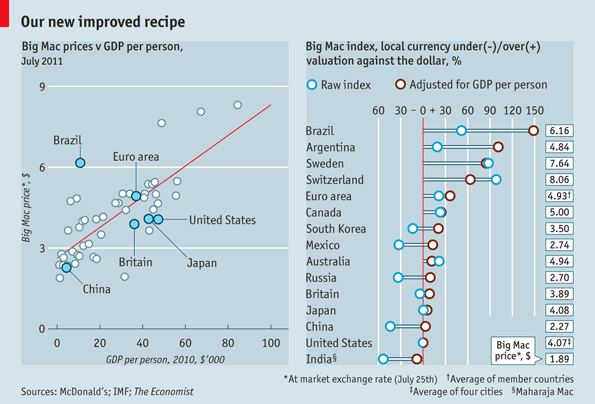The Economist updates their Big Mac Index, which as we all know, is the most accurate way to measure the global economy:
It is based on the theory of purchasing-power parity (PPP), the notion that in the long run exchange rates should move towards the rate that would equalise the prices of a basket of goods and services around the world. At market exchange rates, a burger is 44% cheaper in China than in America. In other words, the raw Big Mac index suggests that the yuan is 44% undervalued against the dollar. But we have long warned that cheap burgers in China do not prove that the yuan is massively undervalued. Average prices should be lower in poor countries than in rich ones because labour costs are lower. The chart above shows a strong positive relationship between the dollar price of a Big Mac and GDP per person.
When adjusted for GDP, we can see where Big Macs are actually expensive: Brazil, Argentina, and Sweden. I guess there's a premium on special sauce over there.
[The Economist via kottke]



Nenhum comentário:
Postar um comentário